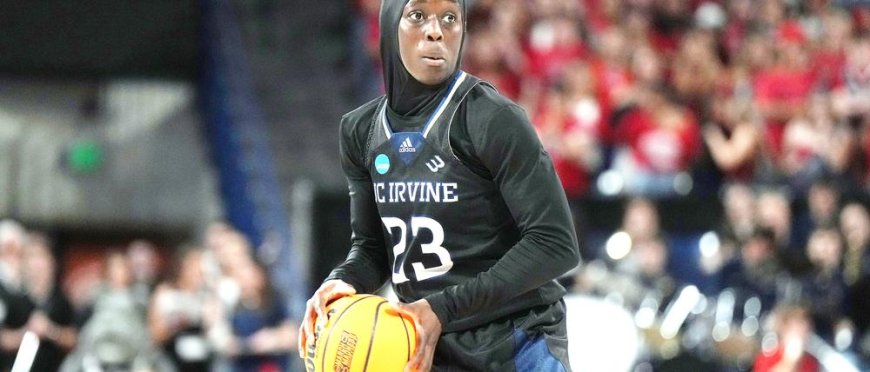France's Hijab Ban for Athletes Sparks Controversy Ahead of Paris Olympics

France's policy banning athletes from displaying religious symbols, particularly affecting Muslim female athletes, has ignited a heated debate over the application of secularism in sports. Critics argue that this policy enforces a double standard.
Diaba Konaté, a 24-year-old basketball player, embodies the conflict many Muslim athletes face. Having spent a significant portion of her life playing basketball, Konaté's passion for the sport is evident. "Basketball is almost two-thirds of my life. I grew up with it; I'm the only one in my family in professional sports. It's truly my life; I love the feeling it gives me," she shared.
Her experience in the United States, where she played basketball on a sports scholarship and started wearing the hijab, was starkly different from her native France. She recounted her shock upon being barred from a match in France due to her hijab. "Just hours before the start, I was told, 'Diaba, you can't play because of your headscarf.' I didn't understand, as I had played in junior national teams before. I thought everyone knew me and would let me play," she said, reflecting on the moment.
As Paris gears up for the opening ceremony of the 2024 Summer Olympics, the hijab ban remains a contentious issue. David Lappartient, President of the French National Olympic Committee, defended the decision on France Info. While the Olympic Charter allows athletes to wear headscarves, France's strict secularism rules mandate religious neutrality for public servants, which extends to the national sports delegation.
"Anyone wearing the national jersey represents France. The State Council has decided that secularism must be respected," Lappartient stated. This decision aligns with the country's broader secular policies, which also prohibit police officers and teachers from displaying religious symbols.
Critics highlight inconsistencies in the application of these rules. Sociologist Haïfa Tlili, who works with affected athletes, pointed out the visible religious expression of football star Olivier Giroud, who sports a prominently visible Bible verse tattoo. "In my view, there are double standards, and that's quite questionable," Tlili remarked.
Johanna Wagman from Amnesty International echoed these concerns, stressing that the issue extends beyond the Olympics. "Our position criticizes the Olympic rule, but it also addresses French sports federations. Some prohibit hijabs in all competitions, excluding many athletes," Wagman explained. For instance, the French Basketball Federation has banned hijabs in competitions since 2022.
Konaté is uncertain about her future in French basketball due to these restrictions. Despite her passion for the sport and her connections with the Olympic team, the hijab ban casts a shadow over the event for her. "I'll still follow the Olympics to support my friends on the team. But without the hijab ban, it would be a much better event," she concluded.
The hijab ban for French athletes continues to spark debate on religious freedom and equality, challenging France's application of secularism in the public sphere.













































